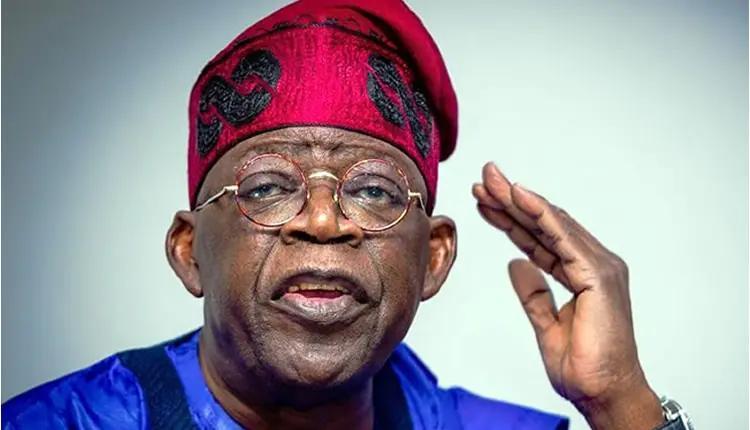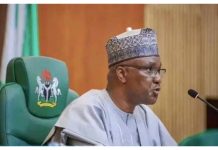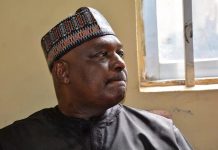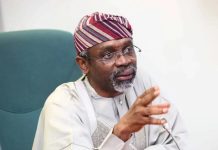Abba Hamisu Sani
Africa-Press – Nigeria. Nigerians have begin to feel the impact of the new government under President Bola Ahmed Tinubu shortly after its inauguration on 29th May 2023.
The impact which could be described as an additional burden on the common Nigerians that are still feeling the pains implicated by the immediate past administration under Tinubu’s predecessor Muhammadu Buhari.
Announcing the removal of fuel subsidy by the new President during his first address to Nation was unexpected.
The shocking decision of the New government
“We commend the decision of the outgoing administration in phasing out the petrol subsidy regime which has increasingly favored the rich more than the poor. Subsidy can no longer justify its ever-increasing costs in the wake of drying resources. We shall instead re-channel the funds into better investment in public infrastructure, education, health care and jobs that will materially improve the lives of millions,” President Tinubu said.
However the question here is what the speech of Tinubu will mean to the daily livelihood of the majority of Nigerians that are poor .
What Is Fuel subsidy and why it was in place
Fuel subsidy in its simplest meaning is a form of government intervention to reduce the cost of fuel by giving direct financial support to oil companies, thus subsidizing the product to consumers.
Nigeria is said to be among the largest crude oil producers in Africa with a minimum of 1.5 to 2 million barrels per day.
The announcement of fuel subsidy removal has already sent ripples in the oil and gas sector.
Few hours after the announcement, many fuel stations were shut down to conserve stock and sell at the new price of subsidy removal.
Some filling stations are selling at N350, N400 or N500 per liter, while others are deliberately hoarding the product. In some parts of the country, the product is said to be selling for as high as N600 per liter.
Nigerians have resorted to panic paying, although the federal government through the Nigerian Midstream and Downstream Petroleum Regulatory Authority have warned that there is no need for such.
The immediate impact of the subsidy removal
However, when the subsidy is finally gone , it will have ripple effects on other sectors of the economy: cost of transportation will increase, there will be increase in food prices and services and this may even push up inflation.
This is the reason the government is planning to provide social interventions for vulnerable Nigerians that would be affected by the subsidy removal. Former President Muhammadu Buhari’s government had said a loan of $800m had been approved to this effect by the World Bank
How much will a liter of petrol cost without subsidy
The Group Chief Executive Officer (GCEO) of the Nigerian National Petroleum Company Limited, Mr. Mele Kyari, in November last year disclosed that the landing cost of Premium Motor Spirit(PMS), popularly called petrol, stood at N510 per liter.
This means that with the current Price of PMS at N195 per liter sold by major marketers, the government is subsidizing up to N315 on every liter.
However, with the recent pronouncement of removal of fuel subsidy, it is estimated that the product will sell for as high as N450 to N500 per liter in major fueling stations and could even be higher in other black market outlets.
The Position of Nigerian Workers on the subsidy removal
Members of the organized Labour under the aegis of the Nigerian Labour Congress NLC and Trade Unions Congress TUC , have described the subsidy removal pronouncement by President Bola Tinubu, as outrageous and insensitive to the economic plight of Nigerian masses.
Describing the subsidy removal as ill-timed, the NLC said the federal government needed to clean up the NNPC.
It said that after doing so, the government should then, “proceed to lay the foundation for a mass transit system in the railways and road network with long term bonds and fully develop the energy sector towards revitalizing Nigeria’s economy and easing the burden any subsidy removal may have on the people.
“But we know this is more than the fuel subsidy. It is about the government’s ideas on the role of money in bettering the lives of people, about the relationship between government and the people and about the primary objective of government’s interaction in the economy.
“It is about whom, among Nigeria’s various social classes, does the government most value.
This is why public reaction has been heated. It is not so much that people have to spend more money. It is because people feel short-changed and sold out”. The Labour Union said. The NLC stated that what the government claimed to be economic decisions were essentially political ones.
“There is progressive politics, there is progressive economics. As there is elitist politics, there is elitist economics. It all depends on what and who in society the government would rather favor. The Jonathan tax represents a new standard in elitism.
“This whole issue boils down to whether government believes the general public is worth a certain level of expenditure.
“However, because the distance between government and the people is far and genuine level of affection is low, government sees no utility in continuing to spend the current level of money on the people. In their mind, the people are not worth the money.
“Government sees more value in “saving” money than in saving the hard-pressed masses.
“If government thrashed the fuel subsidy based on considerations that it will run out of naira then it based its decision on a factor that have not been relevant since the time of the Biafran war.
“If he is expecting a medal for taking this decision, he would certainly be disappointed to receive curses for the people of Nigeria consider this decision not only a slight, but a big betrayal.
“On our part, we are staunchly opposed to this decision and are demanding and immediate withdrawal of this policy. The NLC statement added.
The implications of this decision are grave for our security and well-being.
“We wonder if President Tinubu gave a thought to why his predecessors in office refused to implement this highly injurious policy decision?
“We also wonder if he also forgot the words he penned down on January 8, 2012, but issued on January 11, 2012.” It said.
While reminding Tinubu of the statement he penned against a similar move by the then Jonathan administration to remove fuel subsidy, the NLC urged him to respect his own postulations and economic theories instead of daring the people which could be a costly gamble.
Professoe Uche Uwaleke is an economist and a lecturer with Nasarawa State University. He backed the move by the present administration to remove petrol subsidy.
Uwaleke said fuel subsidy have proven to be unstainable but he advice the government to handle the issue with care. The economist stated this in an interview with THIS DAY news paper “To this end, I suggest an immediate constitution of an ‘economic policies’ coordinating committee’ made up of economic and finance experts,” he added.
For More News And Analysis About Nigeria Follow Africa-Press







